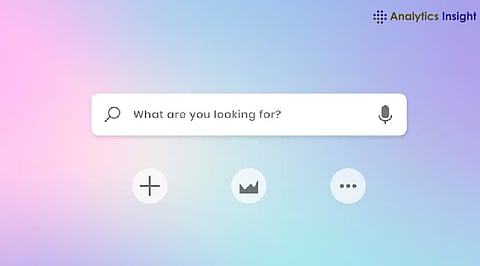

AI is transforming online search by providing direct answers instead of just links. Major search engines are incorporating AI to offer quick, clear responses. While this innovation speeds up searching, its accuracy and impact on content creators and the ad model remain uncertain.
The way people search for things online is changing. Instead of just typing a few keywords and clicking on links, AI is now giving answers directly. This shift could completely change how search engines work and how we find information.
For a long time, search engines like Google have worked by showing a list of links after a search. But with AI, things are different. Now, instead of scanning through a bunch of websites, you can get an instant answer.
Imagine searching for the best phones under ₹30,000. Instead of seeing a list of websites, AI could give a short, clear answer listing the top phones, their features, and why they cut. It’s faster and feels more like talking to someone who knows what they’re talking about.
Big tech companies are already using AI in search engines. Microsoft’s Bing has integrated AI, showing answers powered by OpenAI. Google is testing a feature called AI Overviews, which summarizes answers before showing traditional search results. Other platforms, like Perplexity AI and You.com, blend search with AI chats to give responses directly in the conversation.
The idea is simple: ask a question in plain language and get a direct answer without needing to click through pages.
AI understands full questions and context, not just keywords. For example, if you ask Can I take a power bank on a flight? AI won’t just give you links. It’ll explain the rules in simple language and tell you the size limits for power banks on planes.
Young people are increasingly comfortable interacting with technology through conversation, thanks to voice assistants and smart devices making it feel natural. Typing search queries like power bank or flight rules site dgca.gov.in is starting to feel outdated and unnecessary.
AI isn’t perfect. Sometimes, it gives wrong answers. The problem is that it might sound confident, even if it’s wrong. With regular search, you could click on multiple links and compare information. With AI, the answer is usually just one version, and it might not be the best one.
AI can only give good answers if it has the right data to work with. If the data is wrong or incomplete, the answer could be, too. Users will need to be careful about trusting everything AI says.
With AI providing answers directly, users might not click on links as much. This could hurt websites that depend on clicks to make money. For content creators, bloggers, and news websites, less traffic could mean less revenue from ads. It’s a big concern for creators who rely on people visiting their sites.
If AI takes content from websites without sending users to those pages, it might feel unfair. The creators who put in the work could miss out on views and recognition.
Most search engines make money from ads. But if AI answers reduce clicks, the old advertising model might not work as well. Companies will have to find new ways to make money, and that could change what users see in their search results. Sponsored answers might mix in with regular results, affecting how useful or unbiased those answers are.
The future of search might look more like a conversation. Instead of sifting through a bunch of links, people could ask questions and get a response that fits what they want, all in one place. AI could give a summary, explain things, and even suggest follow-up questions. It’s a new way to get information, faster and more smoothly.
While this change is already happening, it’s still unclear how accurate and trustworthy AI will be in the long run. Whether or not people trust these AI answers enough to stop using traditional search methods is something we’ll have to see. But one thing’s for sure: search is changing, and AI is leading the way.
